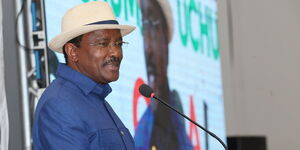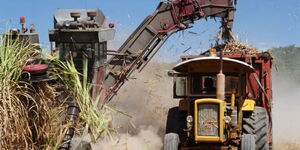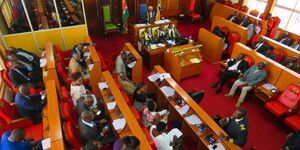The United Nations World Food Programme (WFP) has received a contribution of Ksh 4.7 Billion (US$37) million from the United States Government to provide critical food and nutrition assistance to refugees in Kenya.
In a statement issued by the World Food Programme, the Biden-led administration made the donation which would be used to restart cash transfers for residents of the Kakuma and Daadab refugee camps.
This is following the halt of the programme following a critical shortage in funding.
“The United Nations World Food Programme (WFP) has welcomed a contribution of US$37 million from the United States Government to provide critical food and nutrition assistance to refugees in Kenya,” read the WFP’s statement in part.
However, despite the donation the WFP confirmed a change in its aid strategy for the refugees.
According to the WFP, refugees will now receive aid on a ‘needs-based’ approach which vets the family’s economic ground.
This is a transition from the traditional model of funding where the government has funded refugees through homogeneous support.
“In this approach, WFP will provide food assistance based on the food security and socio-economic status of each family. Currently, 650,000 refugees supported by WFP receive the same level of food assistance, stated the WFP.
Further, the WFP stated that the government has also backed up the transition citing that its part of an initial agenda which had been fronted to integrate refugees into settlements.
The contribution made by the Biden administration will enable the WFP to increase rations for vulnerable refugees and resume cash transfers in Dadaab and Kakuma until December 2024.
Additionally, the new funding from the United States Government comes at a time when chronic funding shortfalls have forced a reduction in food rations over time, reaching an unprecedented low of 40 per cent and a temporary stoppage of cash transfers to 580,000 refugees living in Dadaab and Kakuma camps since May 2024.
In recent months, refugees in Kenya have also fallen victim to the climate crisis, with droughts and floods destroying the little they have. Kenya has experienced a 60 per cent increase in the population of refugees and asylum seekers since 2019.












